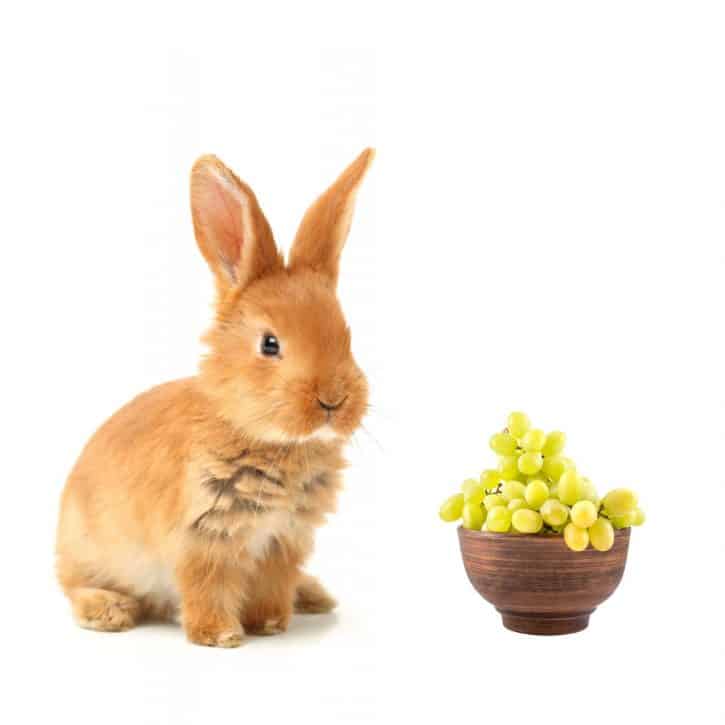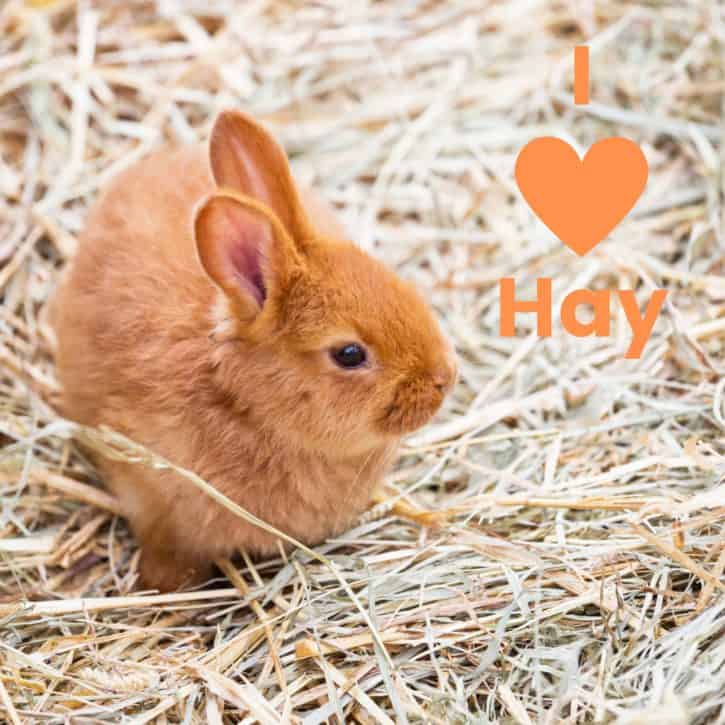Can Rabbits Eat Grapes?
Yes, rabbits can eat grapes, but they should only be fed one grape once or twice a week.
Instead, rabbits should eat primarily hay, and their diet should be supplemented with pellets and vegetables. Fruits should be considered treats and should only be a limited portion of their diet.
To find out more about grapes and how they affect rabbits, read on.
Contents
1 Yes, rabbits can eat grapes, but they should only be fed one grape once or twice a week.
2 Benefits of Grapes for Rabbits
3 There are three main types of grapes:
4 Feeding grapes to your bunny
6 Rabbits should be limited to one to two grapes once a week.
7 Summary: Should bunnies eat grapes?
8 Some reminders to keep in mind when feeding rabbits grapes:
9 What else to feed your bunny
Benefits of Grapes for Rabbits
Grapes are full of many vitamins and minerals such as vitamin C, vitamin E, vitamin K, calcium, phosphorous, and potassium which are beneficial to rabbits’ health.

Grapes are fruits from the family Vitaceae that are known the world over, not only for being delicious sweet fruits but also for being the basis for a beverage loved the world over, wine.
Grapes are berries which are fruits that do not have stones or pits, have two or more seeds, have three distinct layers, and come from only one flower that has only one ovary. That is a lot of requirements just to be called a berry!
The word berry is a misnomer when it comes to many fruits because a lot of fruits with the word berry in their name are not actually berries at all. For example, strawberries, raspberries, and blackberries are not technically berries. However, grapes, bananas, and watermelons are all berries.
There are three main types of grapes:
- Table grapes are grapes that are meant to be eaten when they are fresh.
- Wine grapes are grapes that are meant to be fermented to produce wine.
- Raisin grapes are grapes that are meant to be eaten when they are dried out.
Grapes can either have seeds or be seedless, depending on the variety of grape grown. They also come in a multitude of colors such as black, red, green, white, yellow, blue, and even pink (although red and green grapes are often the most widely known of the commercial grapes).
Grapes also contain polyphenols which are antioxidants (plant compounds that help defend cells from free radicals). The most well-known of which is resveratrol which has been promoted as being possibly beneficial in helping prevent heart disease and certain cancers.
While many people associate resveratrol with red wine, it is also found in grapes, blueberries, and dark chocolate. Unfortunately, rabbits can’t eat dark chocolate!
Another benefit of grapes is that, unlike many other fruits whose stems, leaves, and seeds are toxic to rabbits (like apples and apricots), any part of the grape plant can be eaten. However, if you are worried about your rabbit choking on the seeds, then you can buy seedless grapes.
Feeding grapes to your bunny
It is recommended that you cut grapes into pieces (and possibly remove the seeds) to help prevent choking.
Grapes are also known for their low Glycemic Index which is a ranking of the carbohydrates in food based on how they affect blood sugar. Having a low number (less than 55) means that the sugar in grapes is more slowly absorbed and digested, which in turns means it has less of a drastic impact on blood sugar.
Because of their low GI number, grapes have experienced a surge of popularity and are considered a very healthy fruit. As such, many people feel that grapes are beneficial for rabbits and want to give their rabbits lots of grapes.
However, while the low GI number of grapes does make them a better fruit option than other high GI fruits (like watermelons and cantaloupes), please keep in mind that rabbits have a much lower tolerance for sugar than humans do.
Cons of Grapes for Rabbits
The biggest con of grapes would be their high sugar content.
As mentioned earlier, rabbits should be eating a diet that consists primarily of hay. This is because they have a very specialized digestive system and diet.
Unlike humans, rabbits do not have constant stomach movement (known as peristalsis) to help them digest their food properly. As a result, they rely very heavily on fibrous foods in order to maintain proper digestion.
Foods that are high in sugar are more difficult for rabbits to digest, and too much sugar in their diet can change the pH level of their intestines. This can lead to stomach pain, diarrhea, gas, and bloating.
Since grapes have a low GI number, they are better than higher GI fruits (because they have less of an effect on blood sugar levels). However, they are still considered to be high in sugar for what rabbits require.
While grapes probably seem moderately sweet to humans, for rabbits they are decadently sweet. This means that while rabbits love to eat them, there is such a thing as too much of a good thing.
Rabbits should be limited to one to two grapes once a week.
Raisins should be limited to half that amount since they have more sugar than their fresh counterparts. (Raisins have 25 grams of sugar per cup, and fresh grapes only have 15 grams of sugar per cup comparatively).
Excess sugar can also lead to health problems such as diabetes, heart disease, and tooth decay.
Their high sugar content also makes them quite addicting to rabbits. Many rabbits that are fed fruits that are very high in sugar (like strawberries and grapes) will often refuse to eat other healthier food options. This is especially true if they are given the fruit first before their hay.

Always feed rabbits grapes after they have eaten most of their hay.
Another con of grapes for rabbits is that they are high in calories by rabbit standards. If not limited as treats, then too many grapes can lead to weight problems such as obesity and renal failure.
Also, rabbits are notorious for their sensitive stomachs, so always look for any sign that your rabbit is having trouble digesting grapes (or is eating too many). Some common symptoms to keep an eye out for are diarrhea, gas, bloating, lethargy, and loss of appetite.
Always introduce new foods slowly and monitor your rabbit for signs of intestinal distress.
Another downside of grapes is that conventionally grown grapes have extremely high pesticide residues. They are part of a group called the “Dirty Dozen” which are the top 12 fruits and vegetables that have high pesticide residues.
You should always wash grapes thoroughly before feeding them to rabbits.
Summary: Should bunnies eat grapes?

Not really. But rabbits can consume them. Please limit them as treats because of their high sugar content.
Alternative: Rabbits should eat primarily hay, and their diet should be supplemented with pellets and vegetables.
There are some benefits of grapes for rabbits: they have many beneficial vitamins and minerals, they contain polyphenols like resveratrol, they have a low GI number compared to other fruits, and any part of the grape plant can be eaten.
There are some cons of grapes for rabbits: they are high in sugar, high in calories, and have high pesticide residues.
Some reminders to keep in mind when feeding rabbits grapes:
- It is recommended that you cut grapes into pieces (and possibly remove the seeds) to help prevent choking.
- Rabbits should be limited to one to two grapes once a week.
- Always feed rabbits grapes after they have eaten most of their hay.
- Always introduce new foods slowly and monitor your rabbit for signs of intestinal distress.
- You should always wash grapes thoroughly before feeding them to rabbits.